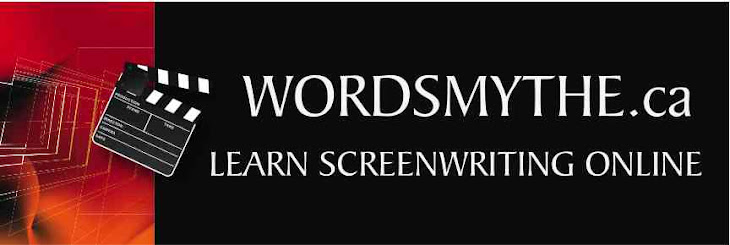
Another year is set to unscroll right before our eyes; the count-down is beginning. It’s a long-standing habit of mine to find some quiet time between Christmas and New Years to assess the year that has past. What worked; what didn’t. What do I wish I had done that I never started and conversely… What did I START that I wished I hadn’t!
Who was it that said an ‘unexamined life is not worth living?” I wouldn’t quite go that far - but it’s worth pausing a moment to acknowledge the joy we find in life. And, the first step to changing what does NOT work in your life is to acknowledge that, as well. If you meant to spend time writing this year and didn’t - maybe it’s time.
At www.Wordsmythe.ca I find tremendous joy in both writing scripts and in helping adults, teachers and even kids around the world figure out how movie stories work. It’s so cool to explain the basics of structure, show a film clip and then watch the ‘light’ go on in someone’s eyes as they start piecing together their own movie idea from the info I've just given them!
It’s really neat to listen to a student explain their story idea, and then watch as they begin to storyboard it right in front of my eyes. Writing stories for film is just so thrilling… but it’s work too. If you’re thinking of beginning your screenwriting career with a feature-length film (roughly 120 pages); don’t let the page count scare you though. EVERY single writer, famous or not so famous, stood exactly where you stand now - KNOWING NOTHING, but wanting to LEARN. Not knowing how doesn’t have to be a life sentence; you just have to tackle the learning in a way that works for you.
Find movies that have inspired you on DvD; then find the LINKS pages at www.Wordsmythe.ca (or Simplyscripts or others). Do this with several films you love and start to see the connection between the word-on-the-page and the finished movie images. Find books to read on screenwriting; read lots of them and then STOP and start figuring out how your movie idea might look IF it were a movie right now.
Take a course, IF that’s the way your brain works. Check out my ScriptTips on Twitter & subscribe. But most of all - DO IT. The movie in your head that you want to write is going to be way more FUN than anything you’ll see this year on TV. So go for it; make it happen this year. Don’t WAIT.
I do hope this helps motivate you to TRY. And of course, I’d love to see your work. Drop me a line at www.Wordsmythe.ca .









